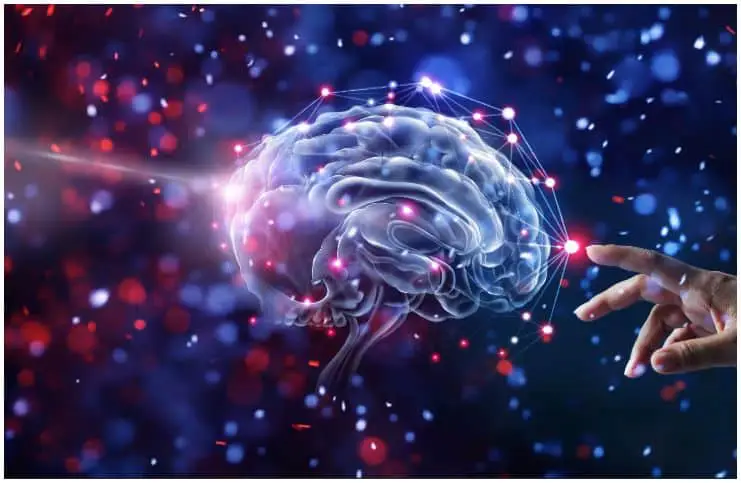Vertigo and Dizziness: spiritual causes & meaning:
In medical terms, vertigo is a specific type of dizziness, a sense that you, or your environment, is spinning or moving, even though there is no movement.
It isn’t a condition itself, however, it is considered a symptom of a variety of health conditions.
According to the National Institute on Deafness and Other Communication Disorders, about 40 percent of the American population will experience some form of balance difficulty or dizziness over the course of a lifetime.
Famous people who struggled with vertigo are – Janet Jackson, LeBron James, Alan Shepard, Emily Dickinson, Peggy Lee, Katie Leclerc, Kristen Chenoweth, and Ryan Adams.
It can be defined based on whether the cause is central or peripheral. Central causes of vertigo arise in the spinal cord or brain, while peripheral vertigo is due to a problem within the inner ear.
Other conditions that can affect the inner ear and cause this kind of dizziness include motion sickness, Ménière’s disease, and toxicity of the ear caused by medicines.
Many children attempt to create a sense of vertigo by spinning around for a time. This type of induced dizziness lasts for a few moments and then disappears.
Symptoms
- unsteadiness, including finding it difficult to walk in a straight line;
- abnormal or involuntary eye movements called nystagmus;
- a sensation of movement (including spinning), either of yourself or the external environment;
- altered level of consciousness, difficulty arousing, or not acting appropriately;
- slurred speech or difficulty speaking, called dysarthria;
- a sense of fullness in the ear;
- finding it difficult to see clearly when moving, for instance, when reading a sign while driving or walking.
Note
This type of attack can occur suddenly and may last from a few seconds to several minutes.
In addition, during a vertigo attack, to reduce the sensation of spinning and ease any symptoms of nausea, it is recommended to lie down still in a darkened room.
Vertigo Dizziness – Spiritual Meaning
 Metaphysical causes of dizziness and vertigo include – desperate for love and approval but not knowing where to look for it.
Metaphysical causes of dizziness and vertigo include – desperate for love and approval but not knowing where to look for it.
Trying to control everything.
Trying to avoid seeing an uncomfortable truth, especially when you do not want to face a situation. In addition, it can be caused by fear or anxiety.
READ MORE: 6 Foods That Trigger Migraines
Physical Causes
An inner ear problem usually causes it. Some of the most frequent causes include:
Labyrinthitis
Labyrinthitis has many names, including:
- neurolabyrinthitis;
- vestibular neuronitis;
- vestibular neuritis.
It is an inner ear infection that may lead to a structure deep inside your ear becoming inflamed. The labyrinth contains two important organs:
- the balance organs (vestibular system) that tell people which way is down and up;
- the cochlea, which is required for hearing.
The symptoms include:
- mild headaches;
- a feeling of pressure inside your ear;
- double vision;
- ringing in your ear;
- blurred vision ;
- pus leaking out of your ear;
- a high temperature (fever);
- feeling sick;
- ear pain.
The following can cause the condition:
- bacteria, like that which causes Lyme disease;
- herpes virus infection, which also causes shingles, cold sores, and chickenpox;
- viral infection of the stomach, inner ear, or respiratory tract.
Factors that can raise your risk for labyrinthitis:
- using certain prescription or nonprescription drugs;
- drinking large amounts of alcoholic beverages;
- stress;
- fatigue;
- smoking;
- recent respiratory infection, viral illness, or ear infection;
- a history of allergies.
Treatment for labyrinthitis might include:
- medicines to take for a short time which control dizziness and nausea;
- Antibiotics, only if there are signs of bacterial infection;
- Antiviral medicines;
- Corticosteroids – these medications help reduce inflammation of the nerve.
READ MORE: What Is The Spiritual Meaning Behind Teeth Problems?
Meniere’s Disease
It is a condition commonly caused by the buildup of pressure and fluid in the inner ear. This may lead to dizziness along with hearing loss and ringing in the ears.
About 625,000 individuals in the US have Meniere’s disease, according to The National Institute on Deafness and Other Communication Disorders.
Someone with MD will experience at least 2 of the following symptoms at one time:
- headaches;
- vertigo, with attacks lasting anywhere from several minutes to a few hours;
- loss of balance;
- loss of hearing in the affected ear;
- vomiting;
- nausea;
- aural fullness;
- tinnitus.
Factors that contribute to MD, include:
- migraines;
- improper fluid drainage, most likely due to an anatomic abnormality or a blockage;
- head trauma;
- genetic predisposition;
- viral infection;
- allergies;
- abnormal immune response.
Although there is no cure, treatment can help manage some of the signs and symptoms of Meniere’s disease, such as:
- medications – diuretics (a combination of triamterene and hydrochlorothiazide, Prochlorperazine, motion sickness drugs (like – meclizine or diazepam);
- injections – injecting the gentamicin into the middle ear helps control vertigo;
- avoid smoking cigarettes – not smoking also may help lessen the symptoms;
- reduce sodium intake – reducing your intake of sodium helps the body to not retain unnecessary water;
- surgery – it can sometimes be an option to combat cases of vertigo.
READ MORE: Headaches and Migraines – Spiritual Cause
Brain Disorders
They are the usual cause of dizziness, especially migraines, even without a headache, which the majority of people associate with a migraine. Moreover, other causes of these symptoms can include stroke.
BBPV
Benign paroxysmal positional vertigo is the most frequent form of vertigo. BBPV is characterized by a slight sensation of motion lasting about twenty seconds to several minutes.
It is essential to know that benign paroxysmal positional vertigo will not give you constant dizziness, which is unaffected by a change in position or movement.
The signs and symptoms of BPPV may include:
- vomiting;
- nausea;
- a loss of balance or unsteadiness;
- vertigo;
- dizziness.
Note – it may go away on its own within a few weeks or months.
READ MORE: Abdominal Pain and Stomach Ache – Spiritual Meaning
Anxiety Disorders
Anxiety or stress may play a significant role in causing these symptoms.
The regular practice of mindfulness meditation can substantially reduce your stress levels and anxiety.
Healing Affirmations
”I am deeply centered and at peace with life. It is safe for me to be alive and joyous.”
”I deserve to have excellent health.”
”I am completely free of vertigo and dizziness.”
”I’m completely healed in my mind and my body.”
Important Note
These symptoms can also be triggered by sleep deprivation.
Therefore, if you are experiencing these symptoms for the first time, it might be a result of a lack of sleep as well as emotional stress.
Images credit – Shutterstock
READ THIS NEXT: Hair Loss – Spiritual Cause
References https://www.sciencedaily.com/releases/2018/05/180524174559.htm https://www.tandfonline.com/doi/abs/10.1080/00016480310002122 https://journals.plos.org/plosone/article?id=10.1371/journal.pone.0174114


Mary
Thursday 5th of September 2024
Thank you for this information. It helps tremendously
Cath
Friday 13th of November 2020
Thank you!
Thursday 3rd of October 2019
Thank you!!!
Naomi
Friday 23rd of August 2019
Thx, this information has been of great service